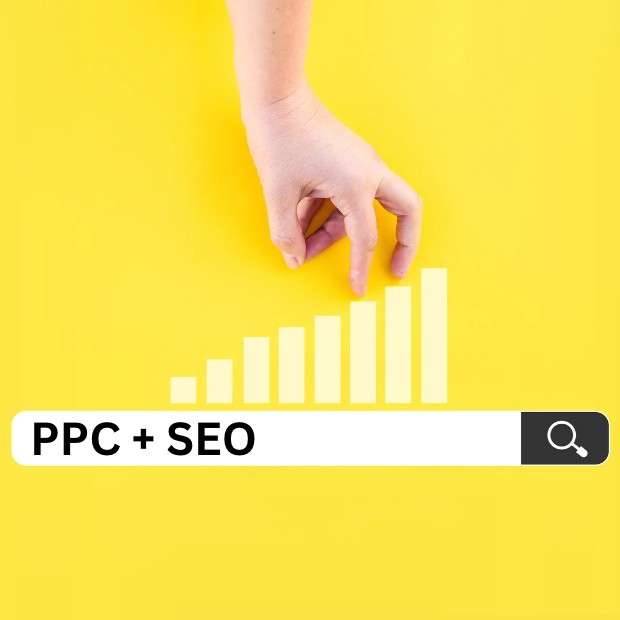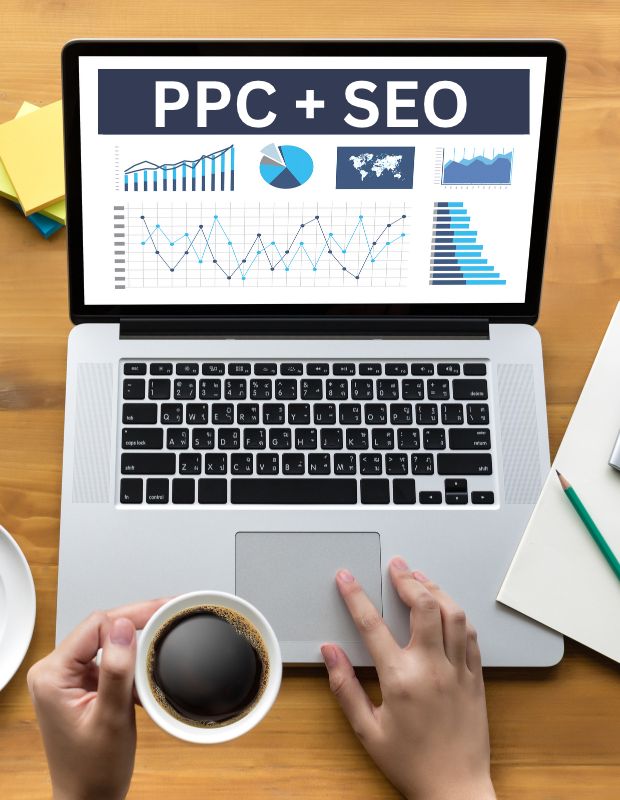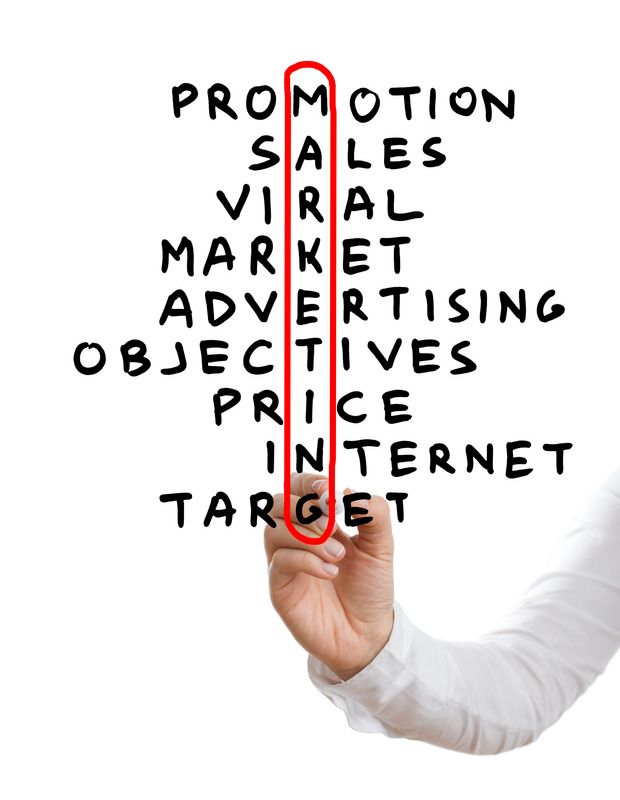
Are you feeling exhausted from attempting to increase traffic and sales to your website solely through either pay-per-click (PPC) or search engine optimization (SEO)?
You’re not alone. Many businesses face the challenge of determining which approach to choose. However, when combined, both PPC and SEO can be extremely effective tools. That’s why I’ve put together this blog post on synergizing PPC and SEO: 5 tactics to increase your ROI. You’ll learn how to combine these two tactics to maximize your online visibility and drive more conversions. By using both PPC and SEO together, you can reach more of your target audience and improve your return on investment (ROI). Regardless of your level of experience, this post will help you learn how to leverage the power of PPC and SEO in harmony. Let’s get started!
Why You Need to Combine PPC and SEO in Your Marketing Strategy
Why you should combine pay-per-click advertising and search engine optimization (SEO)? The solution is straightforward: they are complementary to one another. Pay-per-click advertising (also known as PPC) is an excellent method to increase website traffic by paying for it. You can reach potential clients who might not find your website through organic search if you use pay-per-click (PPC) ads that target certain keywords and demographics, as these ads provide you the ability to do. On the flip side, search engine optimization (SEO) is a strategy that takes a longer time to implement and involves enhancing your website to rank higher in search engine results. Essentially, the goal is to make your website more appealing to search engines to boost its visibility, rank for more keywords, and get more eyeballs on your content. You can drive more organic visitors to your website and ultimately generate more sales and money if you improve your site’s rating. This will take time, though. You may expand your reach to more of your target audience and increase your return on investment if you use both pay-per-click advertising and search engine optimization (ROI).

PPC and SEO: 5 Strategies for Working Together
Make use of data from PPC campaigns to inform your SEO approach
If you are running a pay-per-click (PPC) campaign, you will have the stats regarding the keywords that are generating conversions and bringing traffic to your website. You may use this information to build your SEO strategy, and then use that plan to optimize the content and meta tags of your website for the same keywords. You can improve the visibility of your website in both sponsored and organic search results by carrying out the aforementioned step. If you’re running a pay-per-click (PPC) campaign for a product that you sell on your website, and you notice that the keyword “affordable red dresses” is generating a lot of conversions, consider optimizing the content and meta tags of your website for that same keyword in to boost your organic search rankings.
Make use of data gathered from SEO to guide your PPC campaign
Did you know that the information you gather from SEO (search engine optimization) can be useful when planning your day-to-day PPC (pay-per-click) advertising approach? Similarly, the data you collect from your PPC campaigns can also inform your SEO strategy. So, by analyzing both SEO and PPC data, you can optimize your online presence and improve your overall digital marketing efforts. For example, if you find that the keyword “best running shoes for women” is bringing a significant amount of organic traffic to your website, think about launching a pay-per-click (PPC) campaign that targets that keyword to boost your visibility in search results and attract even more visitors to your website.
Make use of pay-per-click advertising to supplement your search engine optimization
Let’s say you’re promoting a new product and running a PPC campaign for it. To increase the chances of visitors taking action, you could add a call-to-action in your ad that leads them to a landing page on your website. To make sure the landing page matches the keywords in your PPC campaign, optimize it accordingly. This can help increase your ad’s relevancy score, which can lead to lower ad costs and better results. For instance, if you are running a pay-per-click (PPC) campaign to release a new product, you can include a call-to-action in your ad that directs visitors to a landing page, that is optimized for the same keyword. Your website’s quality score can be improved because of this, and there is a greater possibility that your website will rank better in the organic search results.
You may boost the relevancy of your PPC ads by using SEO
Google will give higher ad rankings and reduced costs-per-click to advertisers who have created advertisements that are pertinent to the user’s search query. When it comes to optimizing your website for certain keywords, SEO is a powerful tool. But did you know you can also use PPC advertising to increase relevance? For example, if you’re running a PPC campaign for a product on your website, it’s important to ensure that the content and meta tags on your website are optimized for the same keywords that you’re targeting in your ads. This way, your ads will be more relevant to users and have a much higher chance of being clicked on. By combining the immense power of SEO and PPC, you can create a stronger online presence and attract more potential customers to your website.
Integrate the data from your pay-per-click and SEO campaigns to give your marketing a boost
You can acquire useful insights into how users interact with your brand online by merging the data from your pay-per-click and search engine optimization campaigns. With this information, you should be able to identify aspects of your marketing plan that could be improved to better engage with your target demographic. If you’re running both PPC and SEO campaigns for your website, you can analyze the data from both to gain valuable insights. For example, you may find that certain keywords are driving a lot of traffic to your website, but the traffic isn’t converting into customers. By identifying this issue, you can take steps to optimize your website and landing pages to meet the needs of your target audience. By continuously analyzing and refining your campaigns, you can improve your overall digital marketing efforts and achieve better results. Merging your pay-per-click (PPC) and search engine optimization (SEO) activities can assist you in improving your online marketing strategy.
Employ a Qualified Individual to Handle Your PPC and SEO Efforts
Let’s begin by examining the significance of pay-per-click (PPC) advertising and search engine optimization (SEO) to your overall approach to online marketing. By using PPC, you can ensure that your ads are displayed to your target audience on search engines and social media platforms. This can help increase the visibility of your business and drive more traffic to your website. Plus, since you only pay when someone clicks on your ad, it’s a cost-effective way to advertise online. By using PPC alongside other digital marketing tactics, you can create a well-rounded strategy that reaches potential customers wherever they are online. PPC and SEO both have the potential to be powerful, but they also have the potential to be difficult and time-consuming. It is in situations like these where it might be very beneficial to hire an expert. Let’s go into the details on why you should think about hiring a professional to handle your pay-per-click (PPC) and search engine optimization (SEO) operations.
Competence and Familiarity With The Marketing Tools
The skill and experience that a professional brings to the table is one of the most significant benefits of using their services. An expert will have a comprehensive awareness of the best practices for both pay-per-click advertising and search engine optimization, and they will assist you in developing a tailored approach that is in line with your company’s objectives. If you hire a professional, they can also keep up with the most recent developments and shifts in the business, which will ensure that your marketing initiatives are always maximized for their potential to be successful.
Management of Both Time and Resources
Handling pay-per-click (PPC) and search engine optimization (SEO) campaigns may take up a lot of time and demand a large investment of resources. You will save time and make better use of your resources if you get help from a qualified specialist. If you hire a professional, they will have the experience and the tools to manage your campaigns, which will free you up to concentrate on other crucial facets of your company.
Data Analysis
PPC and SEO campaigns produce a large amount of data, which needs to be examined and digested before decisions can be made that are in an informed manner. You can get aid from a trained professional to evaluate this data so that you can get insights into the performance of your campaign and make decisions based on the data so that you can improve your outcomes. This data analysis can help determine which aspects of your campaigns require development and can also reveal possibilities to increase your return on investment (ROI).
Better ROI
Your return on investment (ROI) should improve if you have a professional handle your pay-per-click (PPC) and search engine optimization (SEO) operations. A professional will have the expertise and knowledge required to build successful campaigns that generate high-quality leads and conversions. They can be generated by effective campaigns developed by a professional. They can also assist you with optimizing your campaigns so that you can ensure that you are making the most of the money you spend on advertising.
Decreased Probability of Failure
Handling pay-per-click (PPC) and search engine optimization (SEO) campaigns can be dangerous, particularly if you lack the expertise and understanding required to do it successfully. You can lessen the likelihood of making costly errors that will hurt your efforts if you get professional help. Working with a trained expert can help you steer clear of typical errors and guarantee that your marketing efforts are always set up for maximum performance. Your approach to online marketing may be significantly improved if you work with an experienced consultant on your pay-per-click (PPC) and search engine optimization (SEO) campaigns. You will design successful marketing campaigns that generate high-quality leads and conversions if you take advantage of their expertise, knowledge, and resources.

Where Do Pay-Per-Click and Search Engine Optimization Differ?
To start, let’s talk about what PPC and SEO stand for. In Pay-Per-Click (PPC) the advertiser pays a few cents or dollars each time one of their ads is clicked on by a potential customer. You can find these advertisements on a variety of websites, including search engines and social networking networks. PPC (pay-per-click) is a popular form of online advertising. Essentially, advertisers pay a fee each time someone clicks on one of their ads. This means that advertisers only pay when their ad generates actual traffic to their website, making it a cost-effective way to promote their products or services. By using PPC, businesses can reach a wider audience and increase their chances of attracting potential customers. While PPC is a form of online advertising, SEO (search engine optimization) is a process that focuses on improving the ranking of a website on search engines like Google and Bing. By optimizing various elements of a website, such as its content and structure, businesses can make it more attractive to search engines, which can improve its ranking. This can lead to increased visibility and traffic, without having to pay for each click like with the PPC. It’s important to note that PPC and SEO are distinct from one another. PPC relies on paying for clicks to drive traffic to a website, while SEO focuses on improving the organic (unpaid) ranking of a website on search engines. By understanding the differences between these two strategies, businesses can create a comprehensive digital marketing plan that leverages the strengths of both.
Cost
Pricing is one of the primary distinctions between pay-per-click advertising and search engine optimization. PPC requires you to pay for each click that is made on your advertisement, which might cause a significant financial burden. Search engine optimization (SEO) is often an investment that is made for the long term and can deliver rewards over time with no recurring payments.
Timeframe
A further distinction between SEO and PPC is the time it takes to see results. PPC campaigns have the potential to produce instant results because advertisements can begin generating clicks and conversions as soon as they are published on the website. But, search engine optimization (SEO) is a longer-term technique that needs both time and work to be effective.
Targeting
Your ability to target specific audiences based on characteristics like as location, demographics, and interests is made possible through pay-per-click (PPC) advertising. This can assist in increasing the likelihood that people who are more likely to be interested in the items or services you offer will notice your advertisements. While PPC is a form of online advertising, SEO (search engine optimization) is a process that aims to improve a website’s visibility in organic search results. By optimizing various elements of a website, such as its content and structure, businesses can make it more attractive to search engines and increase the likelihood that it will appear in search results for relevant keywords and phrases. Unlike PPC, SEO does not involve paying for clicks or impressions, making it a cost-effective way to drive traffic to a website. By incorporating SEO into their digital marketing strategy, businesses can increase their online visibility and attract more potential customers.
Control
You will have greater control over your advertising efforts if you use PPC. You can choose a budget, zero in on specific audiences, and alter the text of your advertisement and the images as required. Search engine optimization (SEO) depends on the algorithms and ranking variables used by search engines, both of which can be more challenging to regulate.
ROI
PPC and SEO can both result in a positive return on investment (ROI), but they do so in very different ways. PPC campaigns have the potential to deliver fast results and make it easier to manage and quantify the return on investment (ROI). Search engine optimization (SEO) is an investment with a longer time horizon that has the potential to generate outcomes that are maintained. PPC and SEO are both essential aspects of an effective digital marketing strategy; yet, there are significant differences between the two in terms of cost, duration, targeting, control and return on investment (ROI). If you have a thorough awareness of these distinctions, you will make educated choices regarding the distribution of your marketing funds and resources and achieve your goals faster.
Hey there, welcome to my blog! I'm a full-time entrepreneur building two companies, a digital marketer, and a content creator with 10+ years of experience. I started RafalReyzer.com to provide you with great tools and strategies you can use to become a proficient digital marketer and achieve freedom through online creativity. My site is a one-stop shop for digital marketers, and content enthusiasts who want to be independent, earn more money, and create beautiful things. Explore my journey here, and don't forget to get in touch if you need help with digital marketing.

